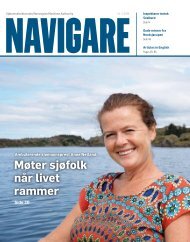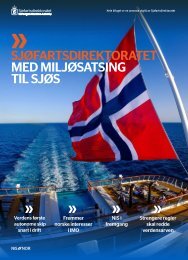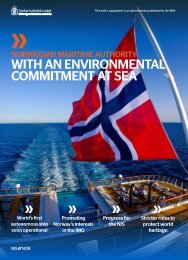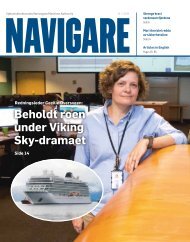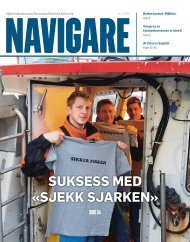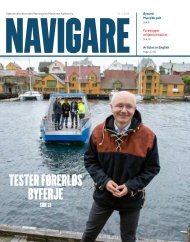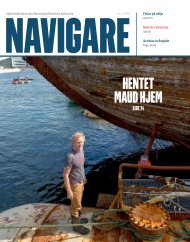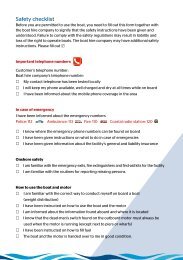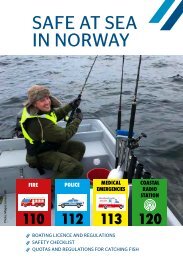You also want an ePaper? Increase the reach of your titles
YUMPU automatically turns print PDFs into web optimized ePapers that Google loves.
NEWS
ENGLISH TRANSLATION FROM PAGE 16
TO HELP: ‘I applied for the job in the Norwegian Maritime Authority because of my wish to help make some contribution to safety,’ Landa says. PHOTO: BJARTE AMBLE
exercise, with a view to shipwrecks in polar
regions.
He reminds us that in the aftermath of the
‘Sleipner’ accident new regulations for the safety
of high-speed vessels have been introduced,
including stricter demands for damage stability,
and that the vessel must be able to stay afloat
even if it is damaged. New regulations for crew
training have also been introduced, as well as
requirements that life vests should be easy to
put on, protect against hypothermia and not fall
off in the water.
‘The ‘Sleipner’ accident also shows the
importance of having sufficient crew who are
well trained in safety work, rescue and
evacuation. We saw also that much could go
wrong in the deployment of life rafts. We are
trying to lobby manufacturers and suppliers
to develop safer deployment systems that are
simple and safe to handle,’ he says.
THE HUMAN FACTOR
‘But how can we reduce the possibility of
human error?’
‘Good training that provides insight into
the opportunities and limitations inherent in
new electronic aids in combination with
experience is important. New technology can
be a key factor for reducing the risk of
accidents, if it is combined with human
knowledge and experience. For example, it
may be easy to lock your focus on to the
electronic map machine and forget to use the
radar. In my opinion, vision and hearing
combined with optical aids will continue to be
the most important. This, in combination
with new technology, will be a guarantee of
safe navigation,’ the experienced naval officer
Erik Johan Landa concludes.
Navigare 4 - 2019 | 57









